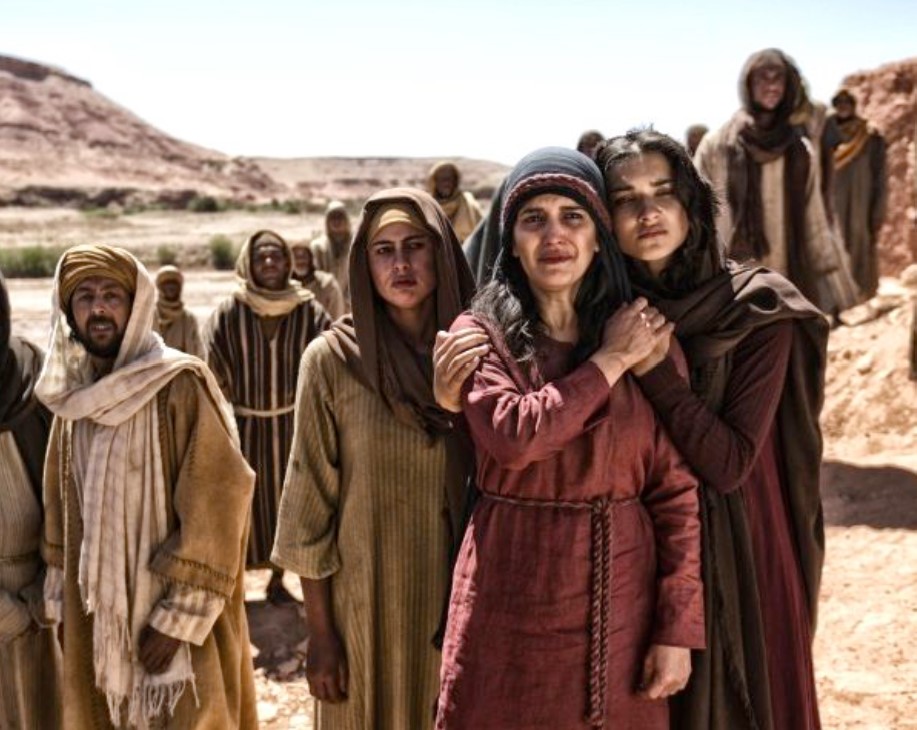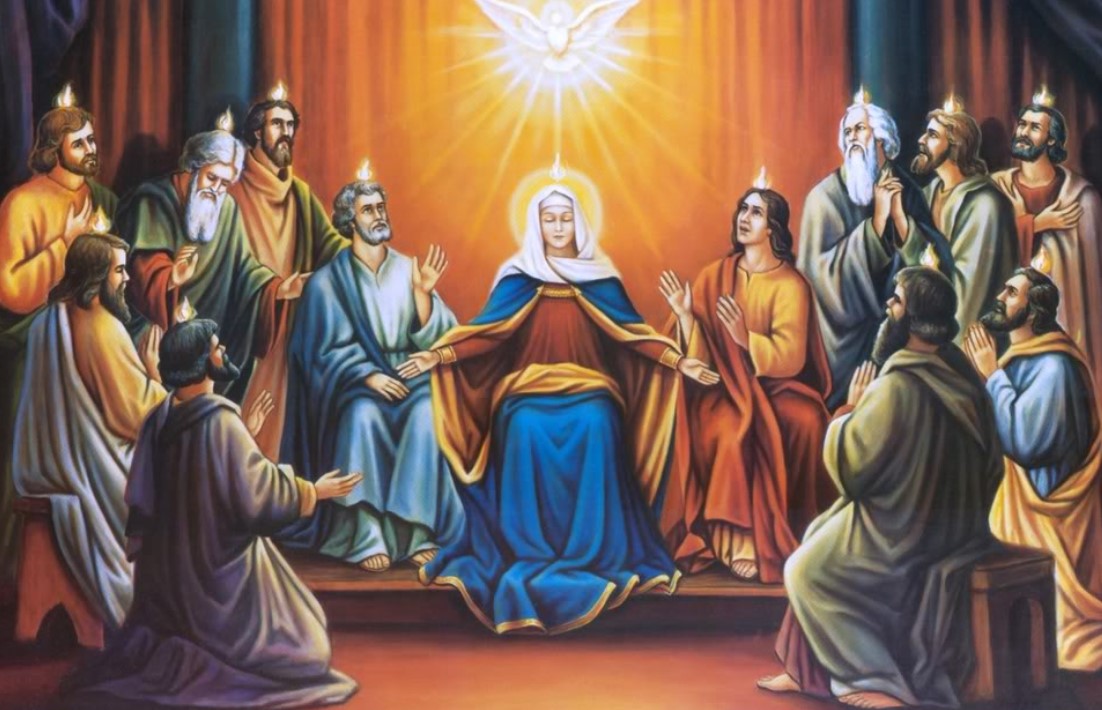
In Jesus Christ’s earthly ministry, many women showcased unwavering faith, resilience, and dedication alongside the famous twelve apostles.
We cordially invite you to commemorate these extraordinary women who committed to serving Christ during His earthly ministry. Their selflessness and dedication deserve recognition and appreciation, inspiring believers globally. We recognize and greatly appreciate their tireless efforts and invaluable contributions to Christ’s ministry.
Despite not being designated apostles, several individuals greatly influenced the church’s development and advancement. Their commitment, selflessness, and perseverance continue to make a lasting impact today.
Exploring their narratives reveals their significance extends beyond mere titles or positions within the church hierarchy.
While the apostles were undoubtedly critical figures in the church’s history, it is essential to acknowledge the contributions of these unsung women heroes. Their efforts helped shape and mold the church into what it is today, and their stories inspire all those who seek to follow in their footsteps.
From the accounts in the New Testament, we encounter several remarkable women who formed an integral part of Jesus’ ministry. Mary Magdalene, often portrayed as one of the most devoted followers of Christ, was the first witness to his resurrection, entrusted with the momentous task of bearing the news to the disciples (John 20:11-18).
Despite not being one of the twelve apostles, her unwavering faith and loyalty embody true discipleship.
In the Gospel narratives, Mary, the mother of Jesus, plays a significant role. When the angel Gabriel announced God’s will to her, she responded with profound obedience and submission, exemplifying the qualities of a godly woman (Luke 1:26-38).
Throughout Jesus’ ministry, Mary stood by her son, witnessing his miracles, teachings, and, ultimately, his crucifixion.

Her silent strength and unwavering faith serve as a timeless example for believers, irrespective of official titles or positions.
In the Gospel of Luke, Joanna is mentioned briefly as another significant figure (Luke 8:1-3, Luke 24:10). Joanna, the wife of Chuza, Herod’s household manager, was one of the women who supported Jesus and his disciples with their resources.
Although her role may appear modest, her dedication to supporting Jesus’ ministry emphasizes the essential role of women in facilitating the spread of the Gospel.
The story of the Samaritan woman at the well (John 4:1–42) is unquestionably an exceptional example of evangelism and discipleship.
Regardless of her past and societal status, she emerges as a dynamic evangelist, guiding numerous people in her village to experience Jesus.
Her boldness in proclaiming the truth highlights the inclusive nature of Christ’s ministry, transcending cultural and gender barriers.
It is essential to recognize that these women were not given official roles or appointed as apostles in the church. Yet, their importance in the Kingdom of God is immeasurable.
Their devotion, courage, and unwavering faith serve as a beacon of inspiration for believers of all generations.

In addressing the theological context regarding women’s roles in the church, it is essential to consider the cultural and societal norms prevalent during biblical times.
The Old Testament reflects a patriarchal society, where specific roles, such as priesthood, were reserved for men.
Although Jesus did not appoint women as apostles in the traditional sense, he consistently challenged societal norms in the New Testament.
He welcomed women as influential followers and witnesses to his teachings. The prevailing culture influenced gender roles and hierarchies. However, Jesus’ actions towards women defied these conventions, emphasizing their innate worth and dignity.

When discussing women’s roles, the church often refers to the Apostle Paul’s writings, especially his instructions to the Corinthian and Ephesian churches.
Paul’s instructions in 1 Corinthians 14:34–35 state that women should be silent in church, and these directives are still universally applicable today.
The application of Paul’s restriction on women teaching or exercising authority over men in 1 Timothy 2:11-15 remains relevant in today’s church settings.
It is vital to affirm the inherent equality of all believers in Christ while acknowledging different interpretations of women’s roles in ministry.
According to the New Testament (1 Peter 2:9), all believers are seen as priests, regardless of gender, ethnicity, or social status, and are equally able to access God and contribute to His Kingdom’s work from a joyful perspective.
Ordination as pastors or ministers is reserved for men, preventing women from preaching in an official capacity.
In contemporary contexts, it is wrong and out of biblical character for modern churches and denominations to go outside of God’s will and ordain and allow women at their pulpits in the name of equality since God knew the whole meaning of equality before the modern church attempts to correct Him by appointing women to serve as pastors in church official capacities.
Women’s roles in leadership and ministry may vary across different churches. Still, the Bible remains God’s final Word and the standard for all matters related to Him and church governance.
Some adhere to complementarity views, emphasizing distinct roles for men and women based on interpretations of biblical texts. In contrast, others embrace egalitarian perspectives, advocating for equal opportunities for men and women in all aspects of ministry.
The ordination of women today goes against God’s Word and the commandment he gave to the church through the Apostle Paul.
Paul’s guidance aligns with Christ’s practice of choosing only men as disciples and apostles and with Moses’ instruction from God to appoint only male priests to serve alongside Aaron at the Tabernacle.
We should not interpret God’s prohibition of women in preaching or ordination as divisive; we must uphold His Word.
In conclusion, the godly women accompanying Jesus during his earthly ministry exemplify the timeless values of faith, courage, and discipleship.
Despite lacking official titles or positions, their invaluable contributions were crucial in spreading the Gospel and establishing God’s Kingdom in different capacities.
It is essential for us, as followers of Christ, to learn and imitate the faith, dedication, grace, humility, and loyalty of these women who were faithful to Him during His earthly ministry.
Value and uphold each person’s inherent worth and dignity, regardless of gender or societal expectations. Honor their legacy and embrace all believers’ diverse gifts and callings in service to God’s kingdom.





Leave a Reply